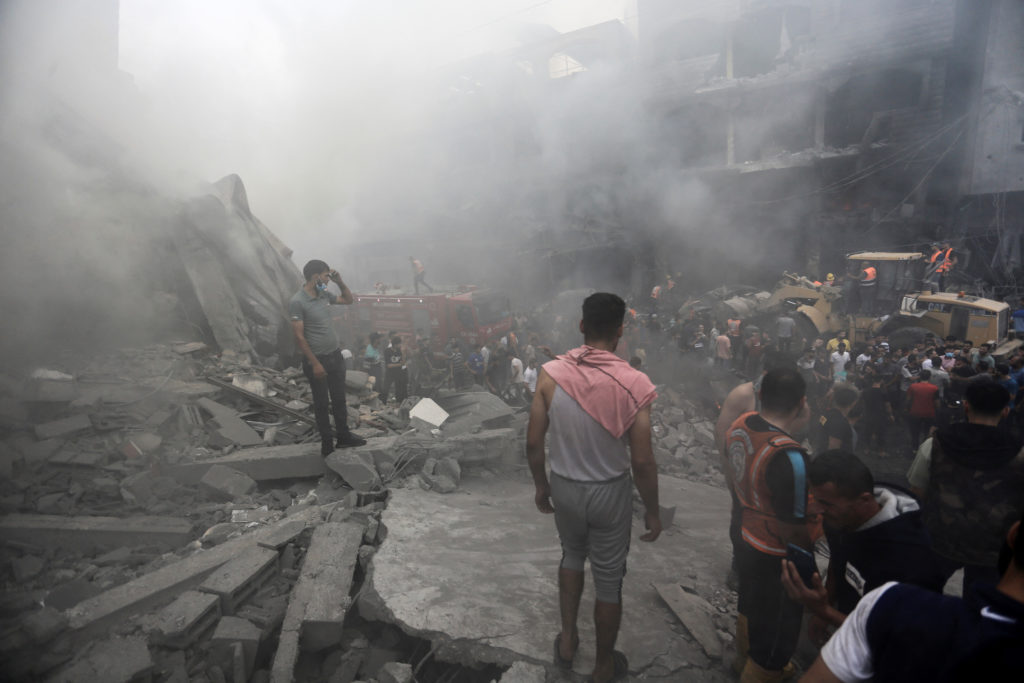The threat of flooding once again looms over the city of Maiduguri, in north-eastern Nigeria, a year after torrential rains and the collapse of a dam left entire neighbourhoods submerged in water.
For many residents who are still bearing the scars of last year's floods, the possibility of a repeat has created huge unease.
At least 37 people died in the floods, and two million had to abandon their houses after the widespread destruction of homes, farms, and businesses.
Forty-two-year-old Sa'adatu Dahiru lost her two-year-old son.
He died as a result of hunger and fever during the flood. We had no proper food, no medicine, and no safe place to stay.
She told how her children cried as they had to rush out in the middle of the night, carrying only a few clothes, leaving everything else behind.
While some initial aid of 10,000 naira ($7; £5) was provided, Sa'adatu laments the lack of ongoing support since then.
The Borno state government has begun reconstructing the dam and dyke system which collapsed. However, progress is hampered by over a decade of insurgency from Boko Haram, which has made maintenance difficult.
As autumn approaches, many survivors still live in makeshift shelters with insufficient food and unclean water, facing a convoluted path to recovery.
Maryam Jidda, a flood victim, recalled her harrowing escape amidst the floods and violence. I stood in waist-deep water, crying, she shared, highlighting the persistent struggle millions face in rebuilding lives shattered by disaster.
With the rainy season fast approaching, the fundamental question remains for survivors: How do I start again when I have nothing? As the government seeks additional funds to support rebuilding efforts, residents yearn for permanence amidst ongoing uncertainties.




















